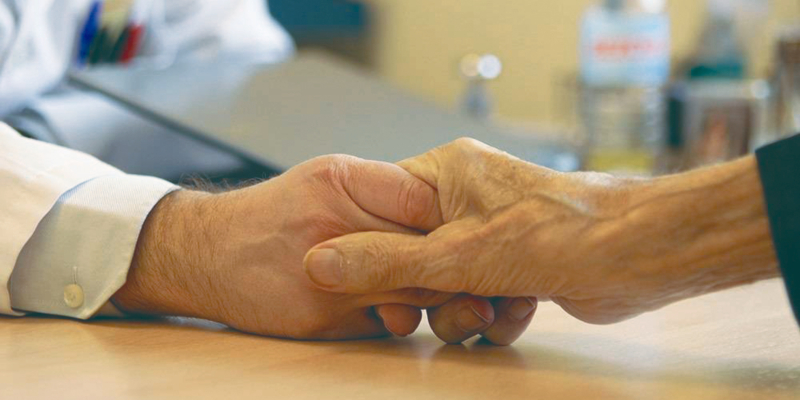In our society there is a great sensitivity to situations that can cause us pain or any form of suffering. And this is natural, because man has been created for happiness.
It is somehow in our "genes" that desire for full and eternal joy, something that opens us to situate ourselves beyond the dimensions of our earthly existence and puts us in the perspective of eternity, to participate in the joy and happiness of the only Eternal One, God, who is the source of this desire and who invites us to participate in his life. This call to full life in God highlights the great value of human life on this earth, because it is the basic condition of that vocation to fullness in eternity; therefore, this vocation also invites us to care for all human life, while at the same time it reveals to us how biological life is a penultimate and not an ultimate reality (cf. St. John Paul II, Encyclical Letter The Gospel of Life, 2).
Call to fullness
The call to this fullness of life is like the source of this desire. However, experience places us every day before pain and suffering. It is, then, a fullness that we hope to attain; but in our earthly situation, until we attain this glory, pain and suffering will be part of our life. Certainly, "we must do everything possible to overcome suffering, but to remove it from the world completely is not in our hands, simply because we cannot get rid of our limitation, and because none of us is able to eliminate the power of evil, of guilt, which is a continuous source of suffering." (Benedict XVI, Encyclical Spe Salvi, 3).
The importance of human life
All this leads us to discover the great importance of safeguarding all human life regardless of age, health conditions, socioeconomic conditions..., without "discarding" anyone. Moreover, we must take special care with the most fragile and vulnerable people.
Certainly, on many occasions, biomedical science cannot propose a cure, but we can always take care. The culture of efficiency in which we are immersed seeks above all to be decisive, to provide quick and simple solutions. And when these are not achieved, there is a certain frustration, because the sole objective is to cure. The culture of care, in this sense, is a challenge, because it does not set out to cure what cannot be cured, and also requires the patience to accompany without great results, sharing in part the suffering. It is very important to "enter" into this logic of care, because in this way no life ceases to be valuable, each individual is important and deserving of our love and care. The opposite ends up generating a mentality that leads us to disregard the weakest; it introduces us into the logic, in the words of Pope Francis, of discarding, and leads to marginalizing the lives of people in situations of special fragility, in addition to building a more individualistic society, in which, paradoxically, the lives of individuals end up being judged as not valuable.
There are alternatives
It is urgent in our time to create a mentality that allows us to recognize the right to be cared for until the natural end of life, as opposed to the growing pragmatic mentality of eliminating those who suffer and not fighting to eliminate suffering. Recognizing the dignity of others makes their rights evident to me. The right is to care, to accompaniment, particularly when the person suffers from an incurable disease and will die in a relatively short time.
Today, medical science, with the Pain and Palliative Care UnitsThe patient has the resources to relieve pain to tolerable limits or to eliminate it altogether. This can even be done at home, allowing death to occur without being in the solitude of a hospital. It is, therefore, possible to die in a manner more in keeping with the dignity of the human person, accompanied by the affection of family and friends, with the necessary attention to spiritual needs and, when appropriate, with religious care. In this sense, the right to promote and safeguard the right to receive palliative care. In Spain, it is estimated that more than 50,000 people die without this care and, therefore, with avoidable pain and suffering, which could be alleviated without special difficulties.
The real "enemy to be eliminated" is suffering and pain, not the life of those who suffer from it. Euthanasia (causing death directly) is often presented to us as a solution full of compassion and as a free request of those who do not want to suffer any more. However, the decision will be freer the less it is conditioned by a situation of suffering. It will first be necessary to eliminate this suffering, in order to help the exercise of the freedom of the persons affected by intolerable pain or when the vital situation involves great anxiety, anguish, fear... The experience of many health professionals shows how, once these symptoms have been controlled, persons change their decision to receive euthanasia.
Director of the Health Department of the Spanish Bishops' Conference









